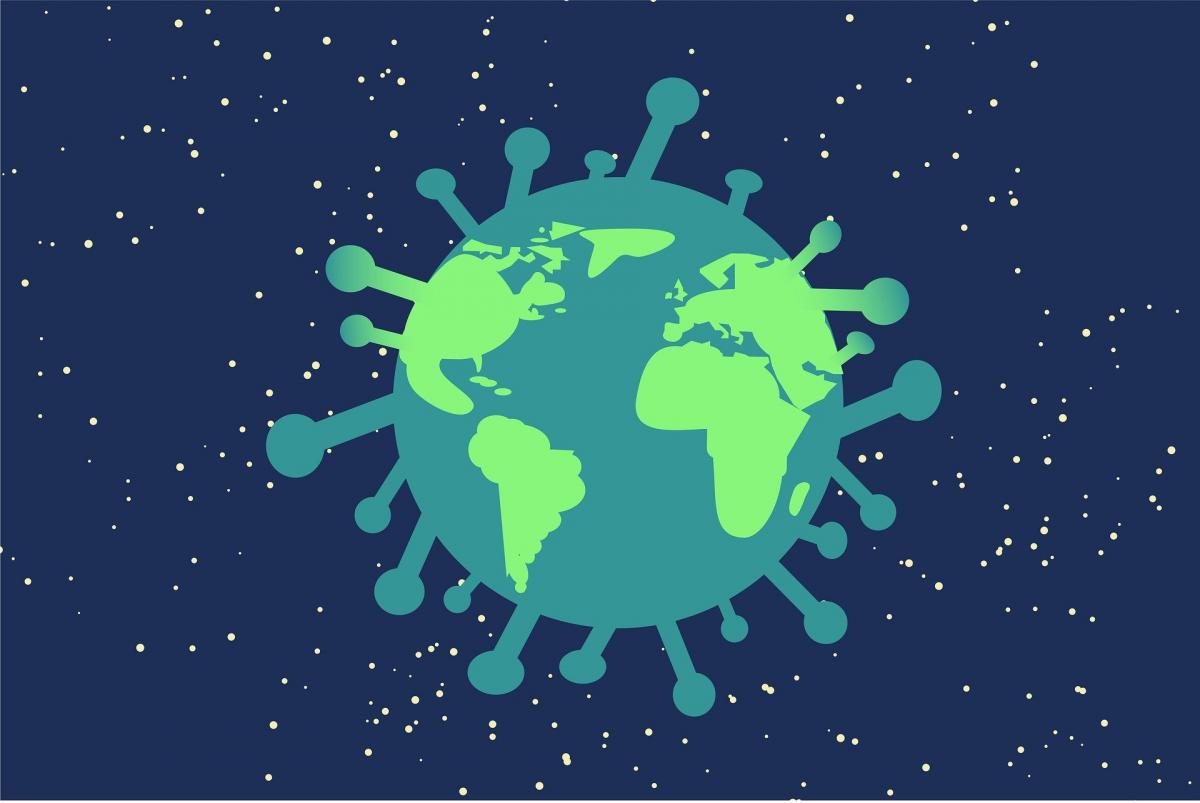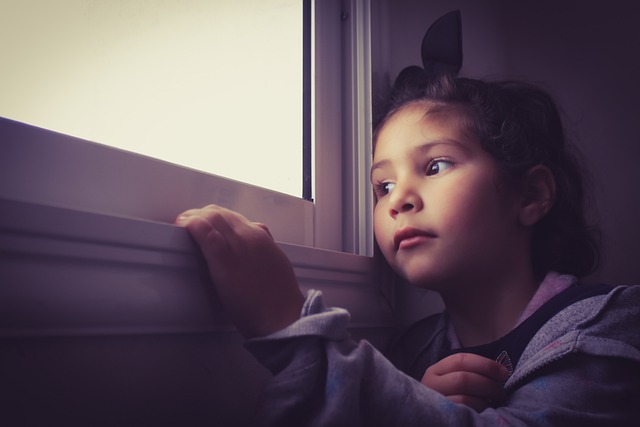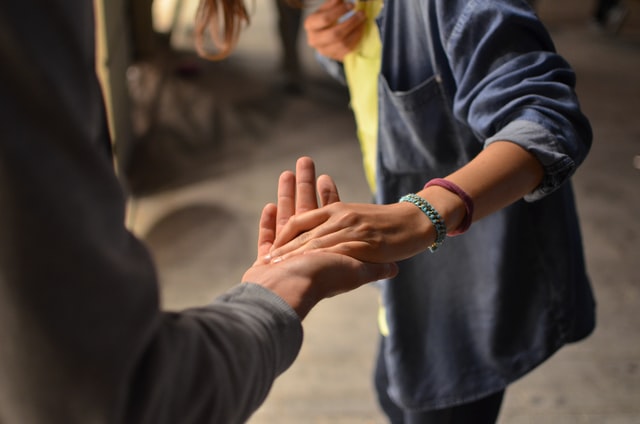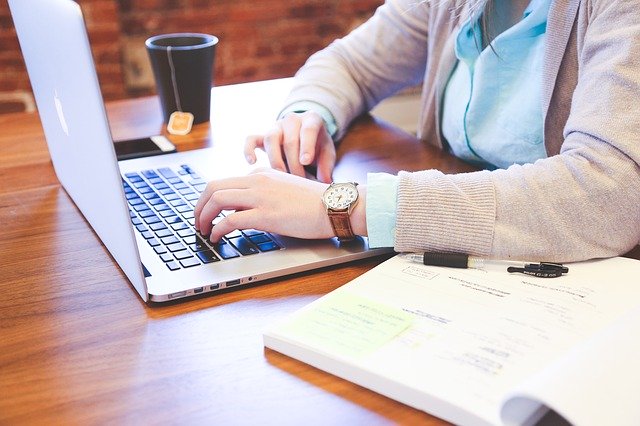Click here to go to our other COVID-19 pages
First published May 2020
Revised September 2020
Last updated 8 April 2021
This page addresses some key questions about addressing the impacts of COVID-19 on family violence, whānau violence and sexual violence. It includes links to research, reports, technical briefs and statements. Understandings and evidence are still emerging.
We add new research, reports, guides and policies related to COVID-19 and violence to our library. To find these resources, see our library quick topic search on COVID-19.
On this page:
What's happening internationally?
What needs to be done in Aotearoa New Zealand?
What about rebuilding and recovery in the longer term?
What's happening internationally?
International human rights organisations have put out a number of global calls to action.
 In July 2020, the United Nations (UN) Special Rapporteur on Violence against Women and the Platform of Independent Expert Mechanisms on Discrimination and Violence against Women (EDVAW Platform) issued a joint statement calling on States to take action to address the pandemic of gender-based violence against women during the COVID-19 crisis. The statement notes that despite the disproportionate impacts on women and children (particularly marginalised groups), women and gender sensitive intersectional responses are largely absent from decision-making and policy in response to COVID-19:
In July 2020, the United Nations (UN) Special Rapporteur on Violence against Women and the Platform of Independent Expert Mechanisms on Discrimination and Violence against Women (EDVAW Platform) issued a joint statement calling on States to take action to address the pandemic of gender-based violence against women during the COVID-19 crisis. The statement notes that despite the disproportionate impacts on women and children (particularly marginalised groups), women and gender sensitive intersectional responses are largely absent from decision-making and policy in response to COVID-19:
“There are also concerns that restrictive measures can lead to compounded and intersectional forms of discrimination against women belonging to disadvantaged and marginalized groups including, but not limited to, women and girls from minorities, indigenous, afro-descendant, migrant and rural communities, older women, women and girls with disabilities, homeless women, women deprived of liberty and victims of trafficking, who are particularly affected by the crisis.
Despite the disproportionate negative effects of the crisis on women, as well as their critical role in keeping communities running, they are largely absent from local, national and global COVID-19 response teams, policy spaces and decision-making. In the absence of gender sensitive intersectional responses, different forms of systemic discrimination already faced by women and girls will be exacerbated.”
The UN experts call for 12 key actions:
- “Ensure the full participation of women and girls in all crisis response and recovery plans.
- Adapt political and legislative measures that have been issued to tackle the pandemic to the needs of women and girls, considering the multiple structural factors that perpetuate discrimination against women and girls and increase their risk in this context, such as economic precariousness, age, migrant status, disability status, deprivation of liberty, ethnic-racial origin, sexual orientation, gender identity, among others.
- Include the prevention and redress of violence against women as a key part of national response plans for COVID-19 on the basis of a coordinated response of all actors, with due recognition of and support for the vital role of women’s support services and NGOs in the support and protection of victims.
- Ensure continued and safe access to support services and emergency measures, including legal assistance and access to judicial remedies for women and girls at risk, or who are subjected to, domestic and sexual violence, harassment and abuse.
- Develop care protocols and strengthen the capacity of security agents and justice actors involved in the investigation and sanction of acts of domestic violence, as well as carrying out the distribution of guidance materials to all state institutions.
- Ensure that COVID-19 response and post-crisis recovery plans promote women’s economic empowerment and address gender inequalities in employment and social protection systems.
- Significantly overhaul and expand social protection systems to take into account women’s specific needs and vulnerabilities including, but not limited to, paid sick leave, increased support for child and elderly care, housing and food subsidies.
- Ensure access to sexual and reproductive health services through easy-to-access procedures such as online prescriptions for contraceptives; ensuring continuous education through accessible educational tools.
- Facilitate the issuance of protection orders and ensure access to rape crisis centers and safe shelters or hotel accommodation for women and girls who are victims or at risk of gender-based violence.
- Protect female health and social work professionals, and all those women who are working in response to the COVID-19 pandemic.
- Specific attention should be paid to women and girls from marginalized groups and their specific needs in terms of accessibility and adequacy of information about the pandemic, the ability to maintain social distance, and access to testing and treatment as well as other necessities including food, housing, sanitation and essential support services.
- Systematically gather disaggregated outbreak-related data, to examine and report on the gender-specific health effects of COVID-19, both direct and indirect as well as on the gender-specific human rights impacts of COVID-19 and utilize this data in the formulation of responses.”
UN Women has also published Gender-Responsive Prevention and Management of the COVID-19 Pandemic: From Emergency Response to Recovery & Resilience (March 2020) focused on 5 key priorities:
- Gender-based violence, including domestic violence, is mitigated and reduced
- Social protection and economic stimulus packages serve women and girls.
- People support and practice the equal sharing of the burden of care.
- Women and girls lead and participate in COVID-19 response planning and decision-making
- Data and coordination mechanisms include gender perspectives
The Continental Network of Indigenous Women of the Americas makes recommendations (May 2020) for States and global actors to address the disproportionate impacts of COVID-19 on Indigenous women and their communities including violence against women and children, starting with "To guarantee the full representative, informed and effective participation of indigenous women and our organizations in the design, implementation, monitoring and evaluation of measures to address the public health emergency and to mitigate its effects in the post-crisis context."
 Human rights leaders have called on States to provide extra support to parents, caregivers, service providers and law enforcement officials in the media release UN experts call for urgent action to mitigate heightened risks of violence against children (April 2020) and technical note COVID-19: Protecting Children from Violence, Abuse and Neglect in the Home (The Alliance for Child Protection in Humanitarian Action, End Violence Against Children, UNICEF and WHO, May 2020). The Alliance for Child Protection in Humanitarian Action has produced a series of resources on the protection of children during the COVID-19 pandemic. They have also published a guidance on Social Protection and Child Protection: How to Join Forces to Protect Children from the Impact of COVID-19 and Beyond (October 2020). For the latest research and policy recommendations specific to children see the UNICEF Office of Research – Innocenti Children and COVID-19 Research Library and UNICEF Innocenti’s COVID-19 rapid response microsite.
Human rights leaders have called on States to provide extra support to parents, caregivers, service providers and law enforcement officials in the media release UN experts call for urgent action to mitigate heightened risks of violence against children (April 2020) and technical note COVID-19: Protecting Children from Violence, Abuse and Neglect in the Home (The Alliance for Child Protection in Humanitarian Action, End Violence Against Children, UNICEF and WHO, May 2020). The Alliance for Child Protection in Humanitarian Action has produced a series of resources on the protection of children during the COVID-19 pandemic. They have also published a guidance on Social Protection and Child Protection: How to Join Forces to Protect Children from the Impact of COVID-19 and Beyond (October 2020). For the latest research and policy recommendations specific to children see the UNICEF Office of Research – Innocenti Children and COVID-19 Research Library and UNICEF Innocenti’s COVID-19 rapid response microsite.
In Prevention: Violence against women and girls & COVID-19 (May 2020), UN Women notes:
“The prevention modalities that have proven to work will require thoughtful consideration and adaptation to the current context created by COVID-19 to ensure that unintended harm is not committed and that women’s safety is placed at the centre of any undertaking. ... Also critical is ensuring that short-term prevention interventions tailored to the immediate circumstances are linked to the medium and longer-term work required around gendered power dynamics and discriminatory norms that can transform societies to be more equitable, rights-based and peaceful.”
Most recently, the UN Special Rapporteur on violence against women has published a report on the Intersection between the coronavirus disease (COVID-19) pandemic and the pandemic of gender-based violence against women, with a focus on domestic violence and the “peace in the home” initiative (October 2020). The report sets out recommendations for States, noting
“… the pandemic of violence against women preceded the current pandemic and will most likely outlast it. … However, the crisis has also highlighted the pre-existing lack of coordination and of a systemic approach to the elimination of violence against women.”
The Special Rapporteur calls on States to take a gender-sensitive, intersectional approach in their response to COVID-19. She makes recommendations related to data collection, helplines, shelters, access to justice and protection orders, access to healthcare services, civil society organisations and national human rights institutions, including:
“States should update and implement national action plans on violence against women in line with general recommendation No. 35 of the Committee on the Elimination of Discrimination against Women, including by adapting relevant measures and services required to combat violence against women in the context of the COVID-19 pandemic.”
Other recommendations for policy and programmatic responses can be found in:
- COVID-19 and violence against women and girls: Addressing the shadow pandemic (UN Women, June 2020)
- COVID-19 and ending violence against women and girls (UN Women, April 2020)
- Pandemics and violence against women and children (Center for Global Development, April 2020)
The UN Development Programme has launched the COVID-19 Global Gender Response Tracker (September 2020) designed to monitors policy measures enacted by governments worldwide to tackle the COVID-19 crisis, and highlights responses that have integrated a gender lens. This includes policies that directly address women’s economic and social security, including unpaid care work, the labour market and violence against women.
The UN Committee on the Elimination of Discrimination against Women called on governments to step up actions to eliminate trafficking in women and girls, highlighting the increasing use of social media to recruit trafficking victims during the COVID-19 pandemic (November 2020).
What needs to be done in Aotearoa New Zealand?
Te Rōpū Whakakaupapa Urutā | National Māori Pandemic Group's Position Statement (2020) calls for action based on three central principles:
- Mana motuhake
- Mana taurite
- Mana whakaora
They state "The mana and authority of whānau, Hapū, Iwi and Māori communities is non-negotiable. Mana motuhake must be recognised in the pandemic response and supported through government action to ensure Māori have access to essential information, resources and high-quality ethnicity data for monitoring so Māori are able to make and enact sovereign decisions."
In this webinar hosted by NZFVC, a panel of family and whānau violence practitioners and researchers explore and urge action on a range of critical issues that have emerged during COVID-19:
In the webinar, kaupapa Māori researcher Rihi Tenana expressed the value of high trust contracting and additional funding made available to Māori providers during COVID-19. She urged this approach to continue, saying:
“It's really important that the State lends itself to seek better relationships, better relationships with Māori providers, better relationships with hapū and whānau. If the State is reluctant to do that and has a strong desire to go back to business as usual then our vulnerable whānau and communities will suffer.”
The New Zealand Human Rights Commission (July 2020) says the "response of NGOs to work collaboratively between themselves and with government to ensure women and families had the support they needed was highly commendable and led to improved support for women during this time. Such collaboration should not be lost as we recover from COVID-19 and move into the future."
Equal Employment Opportunities Commissioner Saunoamaali’i Karanina Sumeo has said the lack of a national plan for responding to family, whānau and sexual violence in the context of an emergency has “… impacted the ability to prevent and respond appropriately to cases of domestic violence during the lockdown and beyond.” She called for a plan to be developed, saying “A victim-centric plan ensuring continued inclusive and accessible services, both prevention and response would have provided targeted support to victims of violence and those at risk of violence during a pandemic. This plan must involve the voices of Māori, Pacific disabled, ethnic and trans women and encourage collaboration at local levels between Police, Civil Defence, Iwi and other community groups in supporting whānau and at national levels.”
The review of literature identifies some of the research articles proposing new strategies for responding to violence against women during the current COVID-19 pandemic (Violence against women in the Covid-19 pandemic: A review of the literature and a call for shared strategies to tackle health and social emergencies, February 2021).
Australian research (July 2020) surveying practitioners responding to violence against women during the COVID-19 restrictions found a risk of losing essential domestic violence workers as a result of overwhelming workloads and potential burn out. The researchers say:
"Historically, there has been limited attention paid to the support needs of the domestic and family violence workforce, beyond a general emphasis on self-care in social work training. Our research shows why this must change moving forward. ... Equal investments are now needed to ensure the health and well-being of support workers now and into the future. The specifics of what this entails should be decided in close consultation with the sector, but we note workers said they benefited from counselling for themselves and their families and flexible working conditions, including additional leave days."
Further research from Monash University has found that almost 70% of specialist family violence workers in their study reported moderate burnout (When home becomes the workplace: family violence, practitioner wellbeing and remote service delivery during COVID-19 restrictions, October 2020). Research from the University of New South Wales interviewed workers about How frontline domestic and family violence workforce in Australia kept connected to their clients and each other through the pandemic (2020).
Research from the US surveyed workers from IPV and sexual violence programmes about the impacts to their work and their concerns for their clients. The found that since COVID-19, staff have more personal and professional stressors, are challenged by practice adaptations, perceive that client safety has decreased, and lack the needed resources to help survivors. They reported that 85% of survey respondents reported an increase in workplace stress related to COVID-19 (On the Front Lines of the COVID-19 Pandemic: Occupational Experiences of the Intimate Partner Violence and Sexual Assault Workforce, December 2020).
New Zealand specialist domestic violence service Shine says "We've got incredibly dedicated staff, but we are dealing with really huge numbers of referrals and it's concerning. We are certainly working beyond our capacity which is a concern - and long-term that is not sustainable." (September 2020)
Social Service Providers Aotearoa (SSPA) highlights that NGO social service providers have played a vital role during COVID-19. SSPA has produced a model Big ideas to tackle big problems (July 2020) on how to recover, reset and transform moving forwards.
 Centre for Social Impact, Hui E! Community Aotearoa, Philanthropy New Zealand, and Volunteering New Zealand partnered to survey 1400 Aotearoa New Zealand tangata whenua, community and voluntary sector organisations on the impacts of COVID-19 in May-June 2020. They note that organisations "rallied, moved rapidly, and in some cases did, and are still doing more with less." They applauded the wage subsidy, high trust funding and flexibility during lockdown. However the sector is now in a "precarious, finely balanced position" finanancially. Rochelle Stewart-Allen from Hui E! said "There remains an urgent need to fill the remaining gaps, give community organisations some certainty, help them replenish their funds."
Centre for Social Impact, Hui E! Community Aotearoa, Philanthropy New Zealand, and Volunteering New Zealand partnered to survey 1400 Aotearoa New Zealand tangata whenua, community and voluntary sector organisations on the impacts of COVID-19 in May-June 2020. They note that organisations "rallied, moved rapidly, and in some cases did, and are still doing more with less." They applauded the wage subsidy, high trust funding and flexibility during lockdown. However the sector is now in a "precarious, finely balanced position" finanancially. Rochelle Stewart-Allen from Hui E! said "There remains an urgent need to fill the remaining gaps, give community organisations some certainty, help them replenish their funds."
What about rebuilding and recovery in the longer term?
In Why our domestic violence pandemic is far from over (May 2020), Our Watch (Australia) state that after easing of public health restrictions, "for women who are living with violence there will be no 'new normal' but rather a new stage of crisis and danger."
In their Initial Briefing on the COVID-19 Pandemic and the Duty to Prevent Violence Against Women & Girls (April 2020), the UK's End Violence Against Women Coalition discuss their "fears for the consequence of months of the public health measures being a ‘new normal’ where abusers have become more accustomed to even higher levels of control and survivors are in a state of very serious trauma and need. A lot of sexual and domestic abuse committed during the period will only come to light after the public health measures are relaxed. ... It will begin a longer, second, post-crisis phase of this pandemic." They urge: "We need to plan for the surge in help-seeking when the public health distancing measures end, and start the conversation on the new high priority aim of truly ending and preventing violence against women and girls in all its forms."
Statistics NZ data from August 2020 revealed that the impact of COVID-19 on New Zealand job losses during the June quarter was disproportionately felt by women. Advocates highlight the need for COVID-19 responses including job creation to use a gender lens. Previous New Zealand research has explored the impacts of economic abuse for women. Hawaii and Canada have published frameworks for intersectional feminist economic recovery. The Gender and COVID-19 Working Group published the brief Hawaii and Canada: Providing lessons for feminist pandemic recovery plans to COVID-19 (October 2020) to summarise the key elements of those frameworks.
 COVID-19 shadow pandemic: Domestic violence in the world of work: A call to action for the private sector (UN Women, June 2020) urges the private sector to leverage their existing resources and influence to keep women safe at home and safe at work. The guidance note COVID-19 and Gender-Based Violence: Workplace Risks and Responses (IFC, July 2020) seeks to inform employers about the heightened risks of gender-based violence as a result of the COVID-19 pandemic and outline ways in which employers can address these risks, improve employee and community well-being, and create a safe and resilient workplace. For Aotearoa New Zealand based information and assistance for employers, see DVFREE from Shine and Responsive workplaces from Women's Refuge.
COVID-19 shadow pandemic: Domestic violence in the world of work: A call to action for the private sector (UN Women, June 2020) urges the private sector to leverage their existing resources and influence to keep women safe at home and safe at work. The guidance note COVID-19 and Gender-Based Violence: Workplace Risks and Responses (IFC, July 2020) seeks to inform employers about the heightened risks of gender-based violence as a result of the COVID-19 pandemic and outline ways in which employers can address these risks, improve employee and community well-being, and create a safe and resilient workplace. For Aotearoa New Zealand based information and assistance for employers, see DVFREE from Shine and Responsive workplaces from Women's Refuge.
In Gendered violence in natural disasters: Learning from New Orleans, Haiti and Christchurch, Jacquie True (2013) writes,
"Despite the human tragedy from natural disasters, the post-disaster period can create opportunities for transforming women’s economic and social situation. ... Gender-based violence, during and after disasters, can be eliminated in the future with gender-sensitive planning and deliberation."
In their Position Statement (2020), Te Rōpū Whakakaupapa Urutā | National Māori Pandemic Group conclude:
"While the pandemic response will seem all encompassing, it will eventually end. When this happens Māori must be left in a position to thrive for collective wellness across generations. The pandemic response cannot be allowed to cause inequitable unintended and long-lasting impacts to peoples’ health and well-being, income and employment support, whānau, Hapū, Iwi and community connection, or access to Te Ao Māori. This requires a comprehensive approach across government, effective immediately, that considers all aspects of Māori health and wellbeing, rather than a narrow preoccupation with the direct impacts of COVID-19."
In the article, Caring for community to beat coronavirus echoes Indigenous ideas of a good life (April 2020), Associate Professor Krushil Watene from Massey University writes,
"Māori and Indigenous peoples elsewhere have long called for social and political transformation, including a broader approach to health that values social and cultural well-being of communities, rather than only the physical well-being of an individual. ... Beyond this current crisis, we need to apply the same collective approach – of protecting each other to protect ourselves – to the other social and political challenges we face. By doing that, we could create a better future for all of us."
In the webinar Māori Recovery: Challenges and Opportunities – Perspectives for COVID-19 (May 2020), Dr Regan Potangaroa, Adrian Te Patu, and Maire Kipa discuss the challenges and opportunities for Māori recovery from the COVID-19 situation, based on learnings from Ōtautahi and other indigenous disaster experiences.
The webinar series Accessing Deep Indigenous Knowing Amidst COVID-19 (April 2020) includes range of speakers and topics and themes around “how do we become, or continue to be good ancestors?” and related questions about the continued commitment of Indigenous peoples to uphold ancestral knowledge for future generations.
A report by Ihi Research looked at the COVID-19 response delivered by Te Pūtahitanga o Te Waipounamu (South Island Whānau Ora Commissioning Agency) including a case study of He Waka Tapu and the 0800 HEY BRO violence prevention helpline for tāne (Research into the Covid-19 Response Plan for Te Pūtahitanga o Te Waipounamu, July 2020). The authors write:
"Globally the COVID-19 pandemic has exposed economic and political inequalities, raising questions about how to mitigate these inequalities to support the world’s most vulnerable. Despite predictions Māori would experience much higher rates of infection and mortality, they had remarkably low levels of COVID-19 infection. While arguably the Māori community gained from the Government’s Alert Level system and response, the extent of the gain for Māori may also be attributable to the localised Māori response. The evidence from this research demonstrates that while the Government COVID-19 response policy was predominantly without specific consideration of Māori, a uniquely Māori response contributed to the positive outcomes."
In a related article, Sacha McMeeking, Helen Leahy, Catherine Savage write about how the self-determination social movement response of Te Pūtahitanga o Te Waipounamu to COVID demonstrates the effectiveness of this model for "...meaningfully cultivating the reclamation of self-determination within our communities" (An Indigenous self-determination social movement response to COVID-19, October 2020. They conclude:
"...Te Pūtahitanga’s model of social transformation is to unapologetically catalyse whānau and community self-determination, and doing so has been proven through the COVID-19 response to increase community resilience, agility and importantly, the quality of life whānau enjoy within those communities. While self-determination is an inherent right, its progressive erosion over colonisation means our communities now need to regenerate and re-institutionalise self-determination as a practice."
Go to FAQ Part 1: Understanding the impacts of COVID-19


